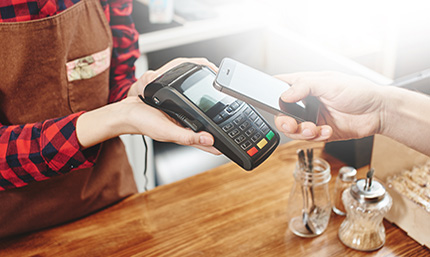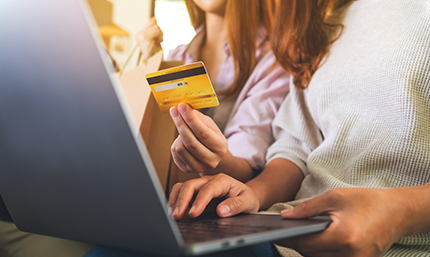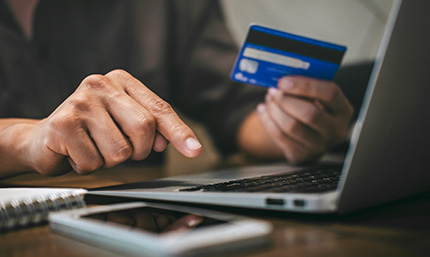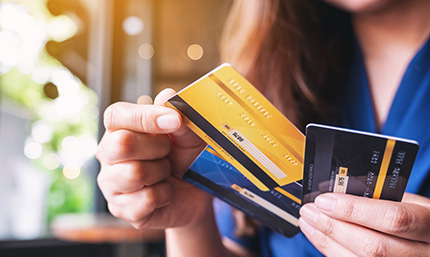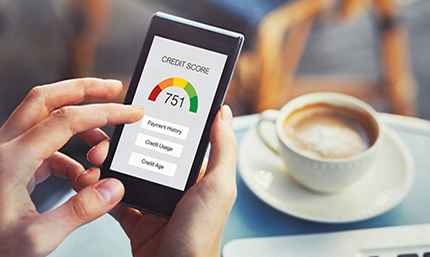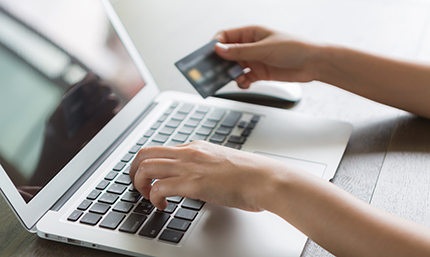News & Tips
A Beginner’s Guide to Free Checking (What It Is & Why You Need It)

Checking accounts are like a Grand Central Station for your money with deposits and withdrawals flowing in and out. In order to have access to the money you’ve stored in a checking account, you’ll usually be provided with a free debit card so that you can make purchases online and in stores and also withdraw cash directly from ATMs. Most checking accounts allow you to pay bills, view statements, and more through accessing an online account, mobile app, or both! Many banks and credit unions offer free checking accounts, but what exactly is a free checking account and why should you get one?
Learn more about our Free Checking account at Space Coast Credit Union.
What is a free checking account?
The definition of a free checking account varies among banks and credit unions, and free doesn’t necessarily mean there will be no additional fees. In most cases, a free checking account won’t charge you a monthly maintenance (or service) fee or require a minimum balance requirement. But many free checking accounts come with strings attached, hidden fees, and other restrictions.
Are all checking accounts free?
Unfortunately, not all checking accounts are free. Most checking accounts require account holders to set up a recurring direct deposit and meet a minimum balance amount. The bank or credit union may also require the account holder to make a certain number of debit card transactions every month to avoid additional fees. About 40% of banks and 72% of credit unions offer free checking accounts.
Common Checking Account Fees
We’ve mentioned a couple of different fees that often come with checking accounts. But let’s take a deeper look at what those mean along with other common fees associated with checking accounts:
- Maintenance (or service) fee: This is what some financial institutions charge just for having a checking account with them. At many banks, this is around $10 to $12 a month. Some places will waive this fee if you set up a recurring direct deposit, use your debit card a certain number of times per month, or keep a certain amount in your bank every day.
- Minimum account balance fee: Some places require that you maintain a certain amount of money (ranging from $100 to $2,500) in your account to avoid service fees.
- Overdraft fee: This fee is charged if you don’t have enough money in your account at the time a transaction is made, which is around $34. Some places may provide you a grace period to correct the amount before charging it, and others will waive it if you ask. You may also get a nonsufficient funds fee if your account is already below zero. At SCCU, you can opt-in to our Automatic Overdraft Transfer Service, where funds are diverted from another account if you overdraw for some reason.
- Transaction fee: Some financial institutions charge a transaction fee for processing a payment with your card. This fee is often a percentage of the transfer amount or a fixed amount for processing a payment. You could also get charged a wire transfer fee for sending money to another person’s account or for receiving money.
- Statement fee: Some banks and credit unions will charge a fee to issue you a monthly bank statement in the mail. You can usually get out of having to pay this fee by enrolling in e-statements.
- ATM fee: Financial institutions often charge fees for withdrawing money from ATMs that they don’t own. The fee is usually a couple of bucks, but it’s often a lot more if you withdraw cash from an ATM in other countries. Be sure to check your bank or credit union’s website where their ATMs are located to avoid such fees. In some cases, you can call and request these fees to be waived.
- Inactivity fee: This is a fee that some financial institutions may levy against you if you don’t use your account for an extended period of time.
The list above certainly isn’t exhaustive of all the potential fees and charges tied to checking accounts. We recommend taking a look at the fine print when opening an account, or ask a representative of the bank or credit union to give you more details about these fees.
Benefits of Having a Free Checking Account
In addition to having fast access to your money, a free checking account, in particular, offers some noteworthy benefits:
- Convenience: With almost all free checking accounts, you can view your statements for free in an online account and through the bank or credit union’s mobile app. And if it’s totally fee-free, you can pay bills and send money to others without incurring extra expenses, and you can deposit as little or as much money as you’d like whenever you’d like without minimum balance concerns.
- Saving money: On average, you’d be saving around $87 a year compared to big banks40 by not spending money on monthly fees. You’d also be saving even more by not having to pay for inactivity fees, statement fees, bill paying fees, etc. with a free checking account. That’s more money in your account to go toward that vacation you’ve been dreaming of!
- Peace of mind: Another priceless benefit of a fee-free free checking account? Not having to worry about maintaining a minimum balance, meeting a quota for transactions, or getting charged for just having an account.
What to Look for in a Free Checking Account
Know that you want a free checking account, but not sure what to look for? Every bank and credit union that offers a free checking account will come with its own specific features, but these are some of the most common ones to look for before you click “apply”:
- No account minimums or monthly fees: It’s a good idea to do a little research beforehand and compare free checking accounts at various financial institutions. They should have a page on their website that lists all the free checking accounts’ features, requirements, and disclosures.
- Fraud prevention features: Take a look at the fraud prevention features that the checking account offers, such as account alerts and Manage Cards that help you protect your personal and financial information.
- Insurance: Check that the bank is FDIC-insured or that the credit union is NCUA-insured. Both types of insurance are government-backed and will reimburse you up to $250,000 if the bank or credit union gets hacked or robbed.
- Online and mobile app services: Scope out the features of these services on the bank or credit union’s website. Check that they’ll be easy to use if you’d like to pay bills, make deposits, transfer funds, track spending, and more 24/7.
- Customer service: When choosing where to open your free checking account, take a look at when and how the bank or credit union can help you in case you need additional assistance with opening an account, switching accounts, or resolving issues. At SCCU, our Team Members are here to help members via phone, Live Chat, WhatsApp, and secure messages.
- Expansive ATM network: Lastly, look at the financial institutions’ locations page to check how many of its ATMs are close by your home and work to avoid ATM fees. At SCCU, you can see all of our ATMs and surcharge-free ATMs here.
This guide provides further details about how to choose the best free checking account.
Free Checking Accounts at Space Coast Credit Union
We offer three types of free checking accounts here at Space Coast Credit Union with a variety of perks for different audiences. What makes us different from banks? As a credit union, we’re a not-for-profit financial institution, which means we’re not here to make a profit for shareholders, but rather, serve our members who are also our owners. See other checking accounts we offer here.
1) Free Checking Account
When we say we offer a free checking account, we really mean FREE—no monthly service fee, no minimum balance requirement, free statements, free online banking and mobile banking, free account alerts, and free person-to-person payments. No hidden fees or restrictions. Best of all? You also don’t have to worry about a direct deposit requirement. In fact, you can get your direct deposit up to two days early42 with your Free Checking account at SCCU! Learn more about how to make the switch to a different checking account here.
2) Student Checking Account
Students age 13-17 can get a head start on the road to financial independence with our Student Checking account while enjoying all the same perks as our Free Checking account. This type of account requires an adult joint account holder. The Student Checking account converts to a Free Checking account once the student turns 18 years old.
3) Free Business Checking Account
Running your own business already requires a lot of outgoing overhead costs such as labor and supplies. A Free Business Checking account at SCCU comes with all the same features as the Free Checking account, so you can conveniently operate your business’ finances while saving on fees and earning interest at the same time. Plus, you can open one with a joint business account holder.
How to Open a Free Checking Account at Space Coast Credit Union
Opening a Free Checking account at SCCU is easy! You just need to be at least 18 years old, have a valid photo ID, and $25 for the opening deposit to get started. You have the option to open it online, at a branch, or over the phone. Feel free to get in touch with us, and a Team Member will be more than happy to answer any questions and assist with your application. Once you’ve opened your account, we’ll send you a free Visa® debit card, and you can enroll in Online Banking and on the SCCU Mobile app.











